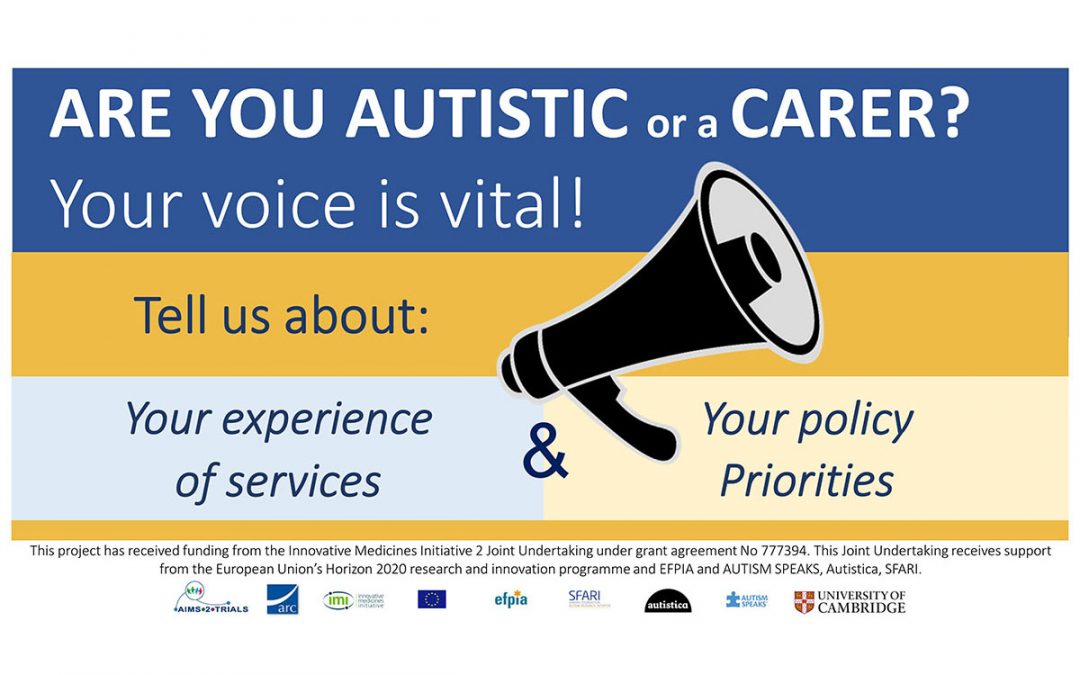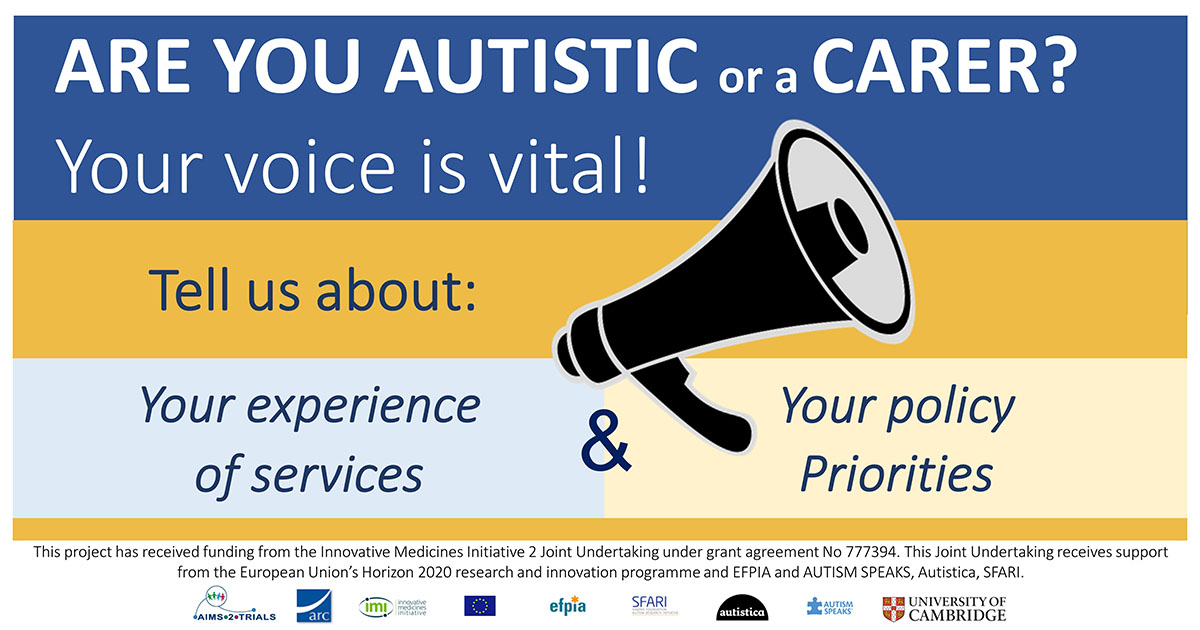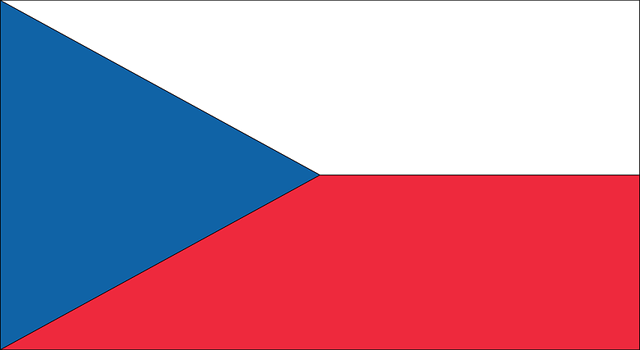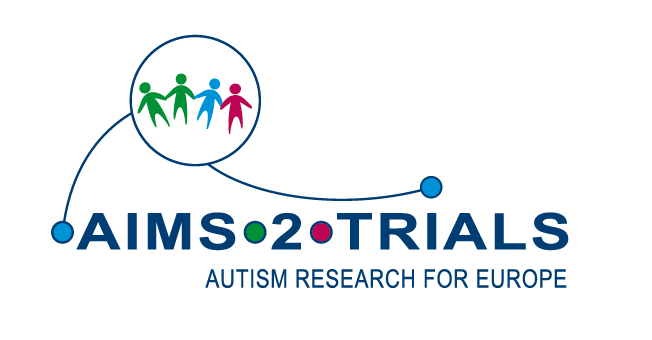Many autistic people will tell you they have struggled to access a service, or perhaps more than one, but policymakers need concrete evidence of gaps in services and genuine need. To address this problem, we have designed ACCESS-EU and 10 Points for Change, two surveys exploring experiences of autistic people and carers when accessing services across Europe and beyond, and policy priorities, respectively.
Background
Across European countries, the availability and quality of services varies. There are examples of good practice that can be used as a model, as well as instances of missing or lower-quality services that require improvement. Unfortunately, there is currently no clear picture of where these examples are to be found. They could be anywhere across health or social care, employment support, financial assistance, an educational programme, or one of many others.
Asking autistic people about their experiences.
The AIMS-2-TRIALS team based at the University of Cambridge has worked with Autism-Europe, Autistica, and Autism Representatives to design ACCESS-EU: a survey exploring the experiences of autistic people and their carers when accessing services across Europe and beyond. This survey asks about a whole range of services, including both mainstream and those tailored for autistic people. To enable as many people as possible to take part, the survey has been translated into French, German, Italian, Spanish, Slovene, Czech and Polish. 10 Points for Change asks about priorities for policy and can be completed by autistic people, carers and those working in the field of autism.
Take the surveys…
Click here for links to the surveys in 8 languages.
… and spread the word: it’s your chance to be heard!
This is a chance for autistic people and their carers to let policymakers know what they need, and it is vital that large numbers of people complete the survey across the whole of Europe. However, reaching people across multiple European countries is a real challenge, requiring the support of the whole autism community. If you can, please encourage people you know to take part and share the study with others who might be interested.
As well as translating the surveys into 8 languages, we have created resources to help you share them in all of those languages, too. Click the flags below to find text and images you can share in your country and beyond.
Informing policymakers.
Developing an evidence-based picture of services across Europe is just the first step on this journey. It will then be crucial to let policymakers know what’s needed.
A great start! Reporting to the Parliamentary Assembly for the Council of Europe (PACE).
The first steps towards communicating with policymakers were taken recently by contributing to a consultation run by the Parliamentary Assembly for the Council of Europe (PACE): ‘The Social Affairs Committee of the Parliamentary Assembly of the Council of Europe report on support for people with autism and their families’. Representatives of the AIMS-2-TRIALS team at the University of Cambridge contributed to the consultation via video-call, emphasising among other things the importance of involving autistic people in developing policies to support them. This principle came through in the recommendations eventually made by the Committee, as shown in the summary, here.
Other recommendations consistent with our research include autism training for relevant staff, including social workers, teachers, doctors, police officers, legal professionals and more; ‘swift and thorough’ diagnosis; and extra support for autistic people in education and employment settings, as well as criminal justice systems. These topics are all covered in the survey, giving autistic people and carers the chance to highlight those that are most important in their country, and to provide policymakers with invaluable additional detail.
Since the consultation was to close in November 2020, before the results were available, the research team agreed to create a preliminary report specifically for the Committee. The report was based on early data from the UK, the country with the most participants at that time, and included examples of the type of results that could be expected when the study is complete. The report was well-received, and quoted during the Standing Committee videoconference on Friday 4 December 2020.
For more details on the consultation, and to watch the presentation, visit the official webpage, here.
Next steps: Getting the full results to policymakers who can make a difference.
Once enough people have completed the survey, the full results will be compiled into both scientific papers and briefing documents. These will be shared widely, including with policymakers across Europe.
If you are interested in hearing about the results, please sign up for our policy updates mailing list.
Informing policymakers.
Developing an evidence-based picture of services across Europe is just the first step on this journey. It will then be crucial to let policymakers know what’s needed.
A great start! Reporting to the Parliamentary Assembly for the Council of Europe (PACE).
The first steps towards communicating with policymakers were taken recently by contributing to a consultation run by the Parliamentary Assembly for the Council of Europe (PACE): ‘The Social Affairs Committee of the Parliamentary Assembly of the Council of Europe report on support for people with autism and their families’. Representatives of the AIMS-2-TRIALS team at the University of Cambridge contributed to the consultation via video-call, emphasising among other things the importance of involving autistic people in developing policies to support them. This principle came through in the recommendations eventually made by the Committee, as shown in the summary, here.
Other recommendations consistent with our research include autism training for relevant staff, including social workers, teachers, doctors, police officers, legal professionals and more; ‘swift and thorough’ diagnosis; and extra support for autistic people in education and employment settings, as well as criminal justice systems. These topics are all covered in the survey, giving autistic people and carers the chance to highlight those that are most important in their country, and to provide policymakers with invaluable additional detail.
Since the consultation was to close in November 2020, before the results were available, the research team agreed to create a preliminary report specifically for the Committee. The report was based on early data from the UK, the country with the most participants at that time, and included examples of the type of results that could be expected when the study is complete. The report was well-received, and quoted during the Standing Committee videoconference on Friday 4 December 2020.
For more details on the consultation, and to watch the presentation, visit the official webpage, here.
Next steps: Getting the full results to policymakers who can make a difference.
Once enough people have completed the survey, the full results will be compiled into both scientific papers and briefing documents. These will be shared widely, including with policymakers across Europe.
If you are interested in hearing about the results, please sign up for our policy updates mailing list.

















